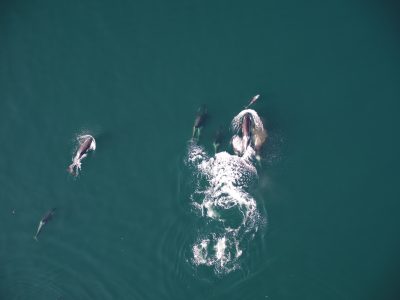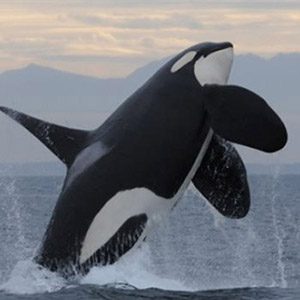Orcas and dolphins seen hunting together for the first time
Canadian researchers capture rare video of killer whales and dolphins working together to forage salmon off B.C. coast, suggesting the two species have forged a co-operative relationship
Coral Reef Survival: Depth, Marine Protected Areas, and Seascape Structure Are Key
Living corals are more likely to survive and thrive when found in deeper water, within Marine Protected Areas (MPAs), or in compact reef patches
Marine heatwaves quietly rewire ocean food webs
These bursts of extreme ocean heat are also reshaping the entire structure and function of marine food webs, with consequences that can last years after the water cools
Dr. William Cheung inducted as a Fellow of the Royal Society of Canada
On Friday, November 14, 2025, Dr. William Cheung, professor and Director of the Institute for the Oceans and Fisheries, was inducted into the 2025 cohort of Royal Society of Canada (RSC) Fellows.
Diet alone doesn’t explain divergent health of California Sea Lions in US and Mexico
Instead of asking whether sea lions are eating the right food, the answer, it seems, depends on where they happen to live.
West Coast mammal-eating killer whales are two distinct communities that rarely mix
New research reveals West Coast mammal-eating killer whales form two distinct communities—inner and outer coast transients—that rarely mix, with unique diets, habitats and behaviors.
‘Forever’ chemicals found in B.C. sea otters
UBC researchers have identified eight per- and polyfluoroalkyl substances (PFAS) in B.C. sea otters.
Student Profile: Emma Shuparski
Why did you choose to study at IOF? I have been working for the non-profit Cetus Research and Conservation Society for the past several years, studying cetacean-vessel interactions in the Discovery Islands. I knew I wanted to advance my degree and connect my work with Cetus to the cutting-edge research happening at IOF. It is […]
Student Profile: Soleil Michaud
Why did you choose to study at IOF? Part of the reason I chose IOF was because I was interested in specifically targeting fisheries. UBC, and more importantly IOF, felt like a good match from the second I looked into the program. With its strong research presence on such a range of topics, this felt […]









